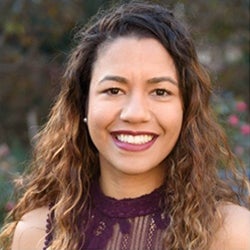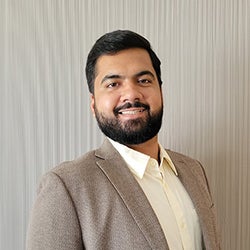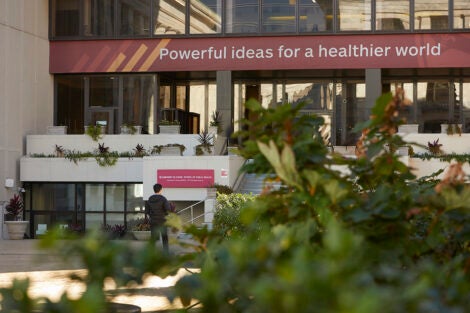February 8, 2024—Harvard Chan Magazine spoke with two PhD candidates at the Harvard Kenneth C. Griffin School of Arts and Sciences, studying at Harvard T.H. Chan School of Public Health, who are pursuing projects with the potential to transform cancer care.
Ilkania Chowdhury-Paulino is investigating pollution as a risk factor for cancer, as she pursues a goal of reducing racial disparities in health outcomes. Intekhab Hossain is developing transformative tools to further explore genomic data that impacts cancer outcomes. Here, they describe their “why”—the cause that fuels their work in public health.

Ilkania Chowdhury-Paulino
My why: Access to early cancer detection and treatment
Growing up in both the Dominican Republic and the United States, I observed the wide health disparities both within the U.S. and between the U.S. and other countries. Seeing family members and neighbors in the Dominican Republic battle cancer drove me to investigate rising cancer rates in low- and middle-income countries.
I chose the Harvard Chan Department of Epidemiology partly for its strength in causal inference. I am currently investigating whether air and light pollution are risk factors for prostate cancer, the second leading cause of death in men in the U.S. Prostate cancer is also the cancer with the starkest racial disparities—Black men have a 60 percent higher risk and double the mortality risk when compared to white men. My work has the potential to establish modifiable risk factors, which are key to helping eliminate health disparities.

Intekhab Hossain
My why: Developing powerful and scalable cancer models
I use math and statistics to impact the health of people around the world. I develop artificial intelligence tools to understand how patterns in gene expression can regulate biological processes, with the aim of developing algorithms that leverage vast amounts of genomic data to extract actionable insights about cancer.
In John Quackenbush’s network biology lab, I am surrounded by mentors as eager to listen to my ideas as they are to provide their own whenever I am stuck.
For my doctoral thesis in the Department of Biostatistics, I developed algorithms that are both scalable to the whole genome and biologically explainable. This is important so that the tools can function in parts of the world where computing resources are not as powerful, such as in the rural areas of the Global South. I hope my machine learning tools will help clinicians and biologists all over the world better understand and respond to cancer.
Investing in Harvard Chan School helps students pursue their passions, make transformative discoveries, and improve health across the globe. To make a difference in the lives of these students and, in turn, to better our world, visit our giving page.
Photos: School: Kent Dayton; headshots: Courtesy of Ilkania Chowdhury-Paulino and Intekhab Hossain
